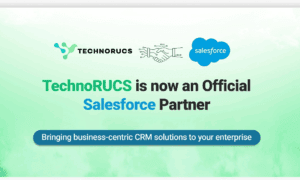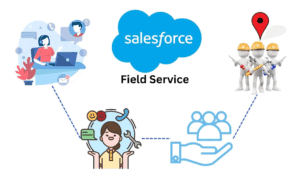The world of Salesforce is more dynamic and promising than ever. This growing landscape creates the need for more certified and skilled Salesforce admins, developers, architects, business analysts, QAs, and executives. This shows whether you’re just starting your Salesforce journey or looking to advance your career, some strategic tips can help you propel your career in this thriving ecosystem for these profiles.
With the right skill set and knowledge, you can be indispensable in the industry. In this blog, we’ll explore five actionable strategies that will help you seek your Salesforce career in 2023 and beyond.
1. Earn skills through training and certification
Salesforce CRM frequently comes with new release rollouts every time. However, you also need to be aware of what recent updates are rolled out for what purposes. This is the only way to stay competitive: commit to ongoing Salesforce training and certification. Consider the following:
- Salesforce certifications: Explore new Salesforce certifications that align with your career goals. For example, if you’re interested in analytics, consider pursuing certifications like Salesforce Certified Einstein Analytics and Discovery Consultant. It will help you gain all the necessary skills required to clear your interview confidently.
- Trailhead: Leverage Salesforce’s free online learning platform, Trailhead, to access a wealth of courses, modules, and hands-on challenges. This excellent platform is open to everyone and is a better way to expand your knowledge and skills in the right direction.
- Trail-mixes: Create custom learning paths on Trailhead using Trail-mixes. This allows you to focus on specific topics or career tracks.
- Live events: Attending events organized by Salesforce or other brands relevant to your career can also be one of the ways to excel in your skills. Salesforce recently sponsored a Dreamforce event in which great experts across the globe present their thoughts on new releases and upgraded technologies. Attending such events live or online can give you expert thoughts.
2. Explore entry-level roles
If you’re a newbie in the growing market, considering Salesforce entry-level jobs like Salesforce Administrator, Data Analyst, or Junior Consultant will help you kickstart your career in Salesforce. These roles help you excel in your skills, strengthen the foundation of Salesforce knowledge, and gain valuable experience.
- Salesforce Administrator: The people managing the Salesforce instance, like customization and configuration for clients or organizations according to their requirements, are the Salesforce admins. We can say these admins manage user accounts, customizing Salesforce to meet business needs and ensuring data accuracy.
- Data Analyst: The person who collects, processes, and analyzes data to extract meaningful insights that lead to informed business decisions is a data analyst. They work with various data sources, often using tools like Excel, SQL, Python, or specialized data analysis software. Data analysts create reports, visualizations, and dashboards to present their findings.
- Junior Consultant: Junior consultants, often at the entry-level, work as part of a consulting team to provide strategic advice and solutions to clients. They may assist with research, data analysis, client meetings, and project documentation.
3. Develop networking by personal branding
Networking is essential to get the right job with the right profile at the correct time. That’s why engaging with the Salesforce community through online forums, social media, and local user groups can help you build your networking. There, you can share your knowledge, ask questions, and be a part of discussions.
Undoubtedly, building a personal brand as a knowledgeable and helpful professional can open doors to new opportunities and collaborations.
- LinkedIn: LinkedIn is the highly leveraged professional platform and best for developing your networking and landing your first job. So, it’s a golden opportunity in your hands to optimize your LinkedIn profile to showcase your Salesforce skills, certifications, and accomplishments. This way, you can connect with fellow professionals, the right audience, hiring managers and join Salesforce-related groups.
- Social media: Social media has been used by audiences for so long. So, what’s better than keeping yourself tuned with multiple social media platforms such as Twitter, Facebook, and Instagram? You can even follow Salesforce influencers and engage in conversations on platforms like Twitter and Salesforce Trailblazer Community.
- User groups: Join local Salesforce user groups, offline or online, to meet professionals and stay updated on regional events and opportunities.
4. Explore specializations
Salesforce offers a wide range of specializations, allowing you to focus on specific areas that align with your interests and career goals. Some popular specializations include:
- Salesforce Developer: If you have a passion for coding and customization, consider becoming a Salesforce Developer. Also, you need to master Apex, Lightning Components (LWC), and integrations to create tailored solutions. If you belong from technical background and seeking career opportunities in Salesforce development, then learning these skills can be a cup of cake for you. But a non-technical candidate can also master these skills.
- Salesforce Consultant: Salesforce consultants work closely with clients to understand their needs and design Salesforce solutions that align with business objectives. They create MOMs for all meetings to ensure all the requirements are rightly communicated, helping them to cater to better solutions.
- Salesforce Architect: Architects design and oversee complex Salesforce implementations, ensuring scalability, performance, and security.
5. Seek mentorship for continuous learning
Mentorship can be a game-changer in your Salesforce career. Seek out experienced professionals who can provide guidance, share insights, and offer valuable advice. Mentorship can accelerate your growth and help you navigate career challenges.
- Mentorship programs: Explore formal mentorship programs offered by Salesforce or local user groups. Except for Salesforce, you will get mentorship from the consultant or partner companies from where you connect and communicate for the right guidance.
- Online communities: Participate in online communities like Salesforce Stack Exchange, where you can seek guidance and learn from experienced professionals.
- Continuous learning: Make learning a lifelong habit. Stay curious, read Salesforce blogs, attend webinars, and always look for ways to expand your knowledge.
Conclusion
There is no doubt that the coming year holds immense potential for Salesforce professionals. By embracing ongoing training, exploring entry-level roles, networking, specializing, and seeking mentorship, you can supercharge your Salesforce career and seize new opportunities in this dynamic ecosystem.
Remember that success in Salesforce is not only about technical skills but also about your ability to adapt, collaborate, and innovate. So, set your goals high, stay agile, and make 2023 and the coming years of growth and achievement in your Salesforce journey. Happy trailblazing!

































